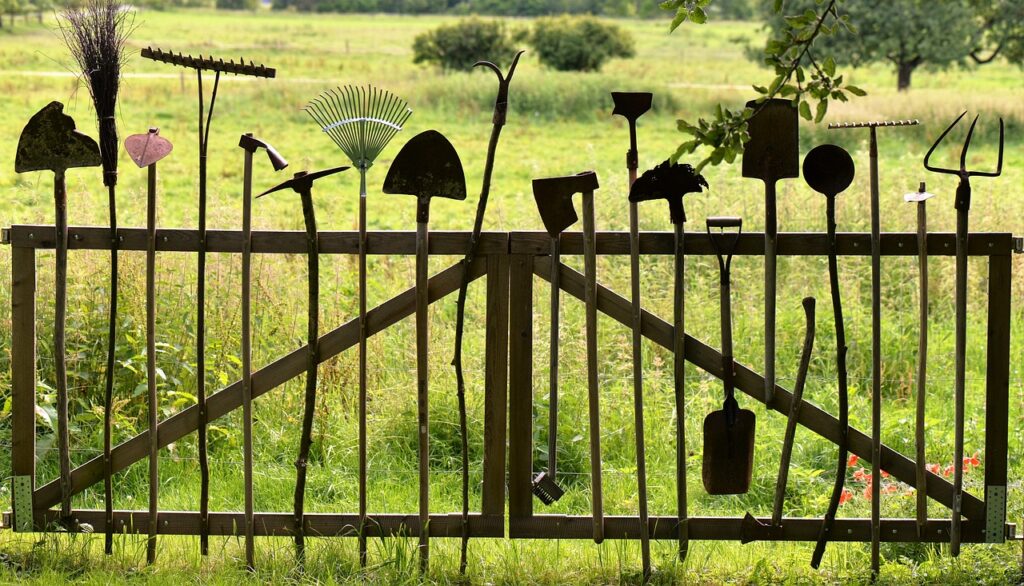Raccoons are clever and adaptable creatures that can cause havoc in gardens and homes if not properly managed. Understanding their behavior and employing effective strategies can help you keep these nocturnal raiders at bay. This article will explore a variety of methods to keep raccoons out of garden, safeguarding your greens and property from raccoon intrusions, and ensuring a peaceful coexistence with local wildlife.
Contents
- 1 Fortifying Your Garden Against Raccoon Intrusions
- 2 Implementing Natural Deterrents and Safe Wildlife Practices
- 3 Raccoon-Proofing Your Home and Property
- 4 Commercial Strategies for Raccoon Prevention
- 5 Post-Removal: Ensuring Long-Term Protection
- 6 Conclusion
- 7 Frequently Asked Questions
- 7.1 What are some effective ways to prevent raccoons from entering my garden?
- 7.2 Can planting certain types of plants deter raccoons?
- 7.3 How can I raccoon-proof my home to prevent indoor intrusion?
- 7.4 What should businesses do to prevent raccoons from accessing trash areas?
- 7.5 After removing raccoons, how can I ensure they don’t come back?
- 7.6 Should I hire a professional for persistent raccoon issues?
Key Takeaways
- Secure trash bins with locking lids and clean up any fallen fruits or vegetation to remove food sources that attract raccoons.
- Trim overhanging branches and seal potential entry points to prevent raccoons from gaining access to your home or garden.
- Use native plants as natural repellents and maintain a respectful distance from wildlife to minimize interactions.
- For commercial properties, secure dumpsters and consult wildlife professionals for tailored raccoon-proofing strategies.
- After removing raccoons, invest in quality exclusion materials and perform regular inspections to ensure long-term protection.
Fortifying Your Garden Against Raccoon Intrusions

Secure Trash Bins with Locking Lids
Raccoons are notorious for their ability to open trash bins and feast on the leftovers, turning your garden into a nightly buffet. To prevent this, secure your trash bins with locking lids. This simple step can greatly reduce the likelihood of raccoon intrusions.
Locking lids not only keep raccoons out but also deter other scavengers such as opossums and coyotes. Ensure that the locks are robust and that bins are not easily tipped over.
- Use bungee cords or heavy-duty straps to reinforce lid security.
- Consider using bins designed with raccoon-proof mechanisms.
- Regularly inspect lids for signs of wear or tampering.
By consistently maintaining secure trash bins, you create a less inviting environment for raccoons, safeguarding your garden’s integrity.
Clean Up Fallen Fruits and Vegetation
Keeping your garden free of fallen fruits and vegetation is crucial in deterring raccoons. These animals are attracted to the easy meal provided by leftovers in your yard. Regularly cleaning up these potential food sources can significantly reduce the likelihood of raccoon visits.
- Remove fallen fruits promptly
- Dispose of garden debris in secured compost bins
- Conduct weekly garden inspections
By maintaining a clean garden, you not only prevent wildlife attraction but also promote the health of your plants.
Ensuring your garden is tidy will also discourage other pests and diseases from taking hold, safeguarding the well-being of your entire garden ecosystem.
Trim Overhanging Branches to Limit Access
Overhanging branches not only mar the aesthetics of your garden but also act as aerial highways for raccoons and other wildlife. Trimming these branches reduces the risk of animals using them to gain access to your home or garden.
Pruning your trees and shrubs is not just about pest control; it’s also crucial for the health and structure of the plants. By keeping the foliage well-maintained, you enhance the visibility of your property’s exterior, making it easier to spot any vulnerabilities.
Regular maintenance, including trimming of trees and bushes, is essential in creating a less inviting environment for wildlife.
Here are some steps to effectively trim overhanging branches:
- Identify branches that are close to structures or act as potential access points.
- Use the right gardening tools like pruning shears and saws for clean cuts.
- Dispose of trimmed branches properly to avoid creating ground cover for pests.
Implementing Natural Deterrents and Safe Wildlife Practices
Use Native Plants as Natural Repellents
Incorporating certain plants into your garden can serve as a natural defense against raccoons. Plants with strong scents or tastes, such as marigolds, lavender, and daffodils, are less appealing to these critters and can act as a deterrent.
- Marigolds emit a scent that repels raccoons and other pests.
- Lavender’s fragrance is calming to humans but disliked by raccoons.
- Daffodils, with their bitter taste, discourage foraging.
By strategically placing these plants around your garden, you create a barrier that is both beautiful and functional.
Remember to choose plants that are non-toxic and safe for any pets you may have. Capsaicin-based sprays or granules are also effective non-toxic options that utilize strong scents or tastes to keep wildlife at bay.
Maintain a Respectful Distance from Wildlife
Understanding and respecting the space of wildlife is essential for coexistence. Educating yourself and others about humane interactions with animals like raccoons is key to avoiding harm.
- Keep a respectful distance: It’s crucial to avoid stress to the animals and potential danger to yourself.
- Secure your trash: Prevent raccoons from scavenging by ensuring trash cans have secure lids.
- Inspect your home: Check for wildlife entry points regularly.
By maintaining a respectful distance and taking preventative measures, we can live harmoniously with wildlife.
As we enjoy the bustling activity of wildlife in warmer months, remember that these creatures require our respect and proper handling. For any wildlife issues, consulting experts is advisable to ensure humane and effective solutions.
Regular Home Inspections to Identify Vulnerabilities
Conducting regular home inspections is a proactive step in identifying potential entry points for raccoons and other pests. Look for signs of disturbance, such as gnaw marks, droppings, or overturned soil. It’s not just about spotting the intruders; it’s about understanding their patterns and sealing off opportunities for them to enter.
Inspect and Seal Entry Points
- Check for cracks or holes in the foundation
- Examine vents, chimneys, and roof shingles
- Ensure windows and doors fit tightly and have no gaps
By routinely checking these areas, homeowners can significantly reduce the likelihood of pest infestations. Remember, prevention is always better than cure.
Home inspections should not be a one-time event. Schedule annual professional inspections to catch issues early. This is especially important if you live in areas with high wildlife activity. A professional can offer insights and solutions that might not be obvious to the untrained eye.
Raccoon-Proofing Your Home and Property
Seal Entry Points to Prevent Indoor Intrusion
Raccoons are adept climbers and can squeeze through small openings to gain access to your home. Inspect your property regularly for any potential entry points. Pay special attention to areas where utility pipes and vents enter your home, as these can often be overlooked.
- Inspect and Seal Entry Points
- Check for gaps and fissures in walls, doors, and windows.
- Use weather stripping and caulking to seal gaps.
- Ensure utility pipes and vents are properly sealed.
Regular maintenance of plumbing systems, including P-Traps and vent stacks, is crucial.
By taking proactive steps to seal off entry points, you not only keep raccoons at bay but also improve the overall energy efficiency of your home. Remember, a small investment in home maintenance can save you from the hassle of dealing with unwanted wildlife intruders.
Remove Outdoor Attractants to Discourage Visits
Minimize yard attractions to deter raccoons. Regularly inspect your property and promptly remove potential attractors like accessible trash or pet food. Maintain a clean and orderly yard to make it less inviting.
Pet-friendly deterrents are essential for homes with animals. Use non-toxic repellents such as capsaicin-based products that are safe for pets but effective against wildlife.
Employ motion-activated lights and sprinklers as a surprise element to discourage raccoon visits. These devices can make your property less appealing by disrupting the darkness raccoons prefer.
Consider the following natural deterrents:
- Cayenne pepper or ammonia sprinkled around the yard
- Fencing with a bend at the top to prevent climbing
- Wildlife-repelling plants like marigolds, lavender, or daffodils
Proper waste management is crucial. Use enclosed bins for compost and be mindful of what is composted to avoid attracting raccoons.
Employ Professional Exclusion Techniques
When it comes to raccoon-proofing your property, professional exclusion techniques offer a robust solution. Experts specialize in sealing off entry points, ensuring that raccoons cannot find a way back into your home or garden. A customized plan is developed for each property, addressing unique vulnerabilities and employing humane removal methods.
Professional services not only remove current wildlife issues but also prevent future invasions with tailored strategies.
Exclusion services extend beyond simple barriers. They include habitat modifications and repairs to any damage caused by the animals. Follow-up checks are crucial to verify the effectiveness of the interventions and to reinforce preventive measures.
The value of professional expertise cannot be overstated. With their knowledge and experience, professionals provide long-term protection, saving you time and potential damage costs in the long run.
Commercial Strategies for Raccoon Prevention

Secure Commercial Dumpsters and Trash Areas
Raccoon infestations in commercial dumpsters can pose significant health and safety risks. Businesses must act swiftly to address these issues, ensuring the well-being of customers and employees. A proactive approach is essential, combining deterrents, regular maintenance, and professional support to keep these persistent critters at bay.
- Scheduled Inspections: Regularly check for damage or potential entry points, particularly in areas that are out of sight.
- Waste Management: Maintain a strict trash protocol. Secure dumpsters and consider deterrents like motion-activated lights.
- Employee Education: Inform staff about raccoon behavior and the importance of a secure environment.
Despite best efforts, raccoon breaches can occur. When they do, it’s crucial to have a clear plan for safe and humane removal.
Implement Raccoon-Proofing Measures for Businesses
The best offense is a good defense when it comes to raccoon control. For businesses, securing dumpsters is crucial. Employ heavy-duty locks, metal bars, or innovative solutions like raccoon rollers to prevent these agile creatures from gaining access. Regular inspections are key to identifying any weak points that raccoons could exploit.
Ensure all dumpsters are in good condition, with no loose hinges or gaps. A well-maintained dumpster is less inviting to wildlife.
Collaboration is also essential. Work with neighboring businesses and local authorities to create a comprehensive wildlife management strategy. This can include scheduled inspections and waste management protocols, such as keeping dumpsters closed and employing deterrents like motion-activated devices.
Educating employees on raccoon behavior and the importance of a secure environment is an investment in your property’s safety. A knowledgeable team can make all the difference in preventing raccoon intrusions.
Consult Wildlife Professionals for Persistent Issues
When DIY solutions and preventive measures fall short, it’s time to seek professional help. Licensed wildlife control experts bring not only their expertise but also humane and effective methods to the table. They are equipped to handle the most stubborn wildlife challenges, ensuring your property remains raccoon-free.
Professional wildlife removal services are crucial for addressing persistent raccoon issues safely.
Here are steps to take when consulting professionals:
- Identify the scope of the wildlife issue.
- Choose a licensed and experienced service provider.
- Discuss long-term prevention and proofing strategies.
Remember, a professional approach is not just about removal; it’s about creating a sustainable coexistence with local wildlife.
Post-Removal: Ensuring Long-Term Protection

Assess and Repair Vulnerable Areas
After raccoons have been removed, it’s crucial to assess and repair any vulnerable areas to prevent future intrusions. Begin with a thorough inspection of your property, identifying any potential entry points that raccoons could exploit. Look for gaps in the foundation, loose siding, or holes in your roof or attic.
- Scheduled Inspections: Conduct regular checks, especially after severe weather, which can create new openings or damage existing barriers.
- Waste Management: Ensure that all waste containers are sealed properly. A consistent trash management system is key to deterring raccoons.
- Employee Education: If applicable, inform your staff about the importance of a secure environment and the role they play in maintaining it.
By sealing off these areas, you not only keep raccoons out but also improve the overall security and integrity of your property.
Remember to use quality materials for any repairs to ensure they are durable and effective against wildlife. It’s not just about patching up; it’s about upgrading your defenses. Regular maintenance checks are essential to catch any new vulnerabilities early on.
Invest in Quality Exclusion Materials
Investing in high-quality exclusion materials is essential for long-term raccoon prevention. Choose materials that are durable and weather-resistant, such as heavy-duty mesh screens or metal flashing. These materials should withstand the ingenuity of raccoons and the harshness of the elements.
Exclusion techniques vary, but the goal remains the same: to keep raccoons out. Seal off potential entry points with materials that raccoons can’t chew through or dislodge. This includes areas like vents, chimneys, and loose siding.
It’s crucial to ensure that all exclusion materials are installed correctly and securely. A poorly fitted exclusion can be as ineffective as no exclusion at all.
Remember, the initial investment in quality materials may seem high, but it pays off by preventing costly damage and potential health risks associated with raccoon infestations.
Regular Monitoring and Maintenance
Consistent vigilance is key to ensuring that raccoons do not return to your garden or home. Regular monitoring of your property can help you spot signs of raccoon activity early on. This includes checking for overturned bins, disturbed soil, or damaged vegetation.
Regular maintenance is equally important. Keep your garden and property well-groomed to reduce the appeal to raccoons. This means trimming bushes, repairing fences, and sealing off any potential shelters.
By staying proactive with monitoring and maintenance, you can prevent the need for more drastic measures in the future.
Remember, a mold-resistant environment is not just about reacting to issues, but preventing them. Managing humidity levels and keeping areas clean are essential practices that parallel garden maintenance in their preventive nature.
Conclusion
In conclusion, safeguarding your garden from raccoons requires a combination of vigilance, proactive measures, and sometimes professional assistance. By securing trash bins, cleaning up fallen fruits, trimming overhanging branches, and implementing other residential strategies like raccoon-proof containers and sealing entry points, you can significantly reduce the likelihood of these nocturnal visitors. Remember, prevention is key, and creating an environment that is less attractive to wildlife is the best defense. For persistent problems, don’t hesitate to consult with wildlife professionals who can offer durable solutions to keep your greens—and your peace of mind—intact.
Frequently Asked Questions
What are some effective ways to prevent raccoons from entering my garden?
To keep raccoons out of your garden, you can secure trash bins with locking lids, clean up fallen fruits and vegetation regularly, and trim overhanging branches to limit their access.
Can planting certain types of plants deter raccoons?
Yes, using native plants like marigolds and cucumbers can act as natural repellents and help deter wildlife, including raccoons, from your garden.
How can I raccoon-proof my home to prevent indoor intrusion?
Seal potential entry points such as gaps or openings in your home’s exterior, including loose siding or holes in roof eaves, to prevent raccoons from getting inside.
What should businesses do to prevent raccoons from accessing trash areas?
Businesses should secure commercial dumpsters with heavy-duty locks, metal bars, or cylindrical guards, and ensure that all trash containers are in good working condition to deter raccoons.
After removing raccoons, how can I ensure they don’t come back?
Post-removal, it’s important to assess and repair any vulnerable areas, invest in quality exclusion materials, and engage in regular monitoring and maintenance to prevent future intrusions.
Should I hire a professional for persistent raccoon issues?
If you’re dealing with a persistent raccoon problem, it’s advisable to consult wildlife professionals who can safely remove the animals and provide expert advice on long-term prevention strategies.


